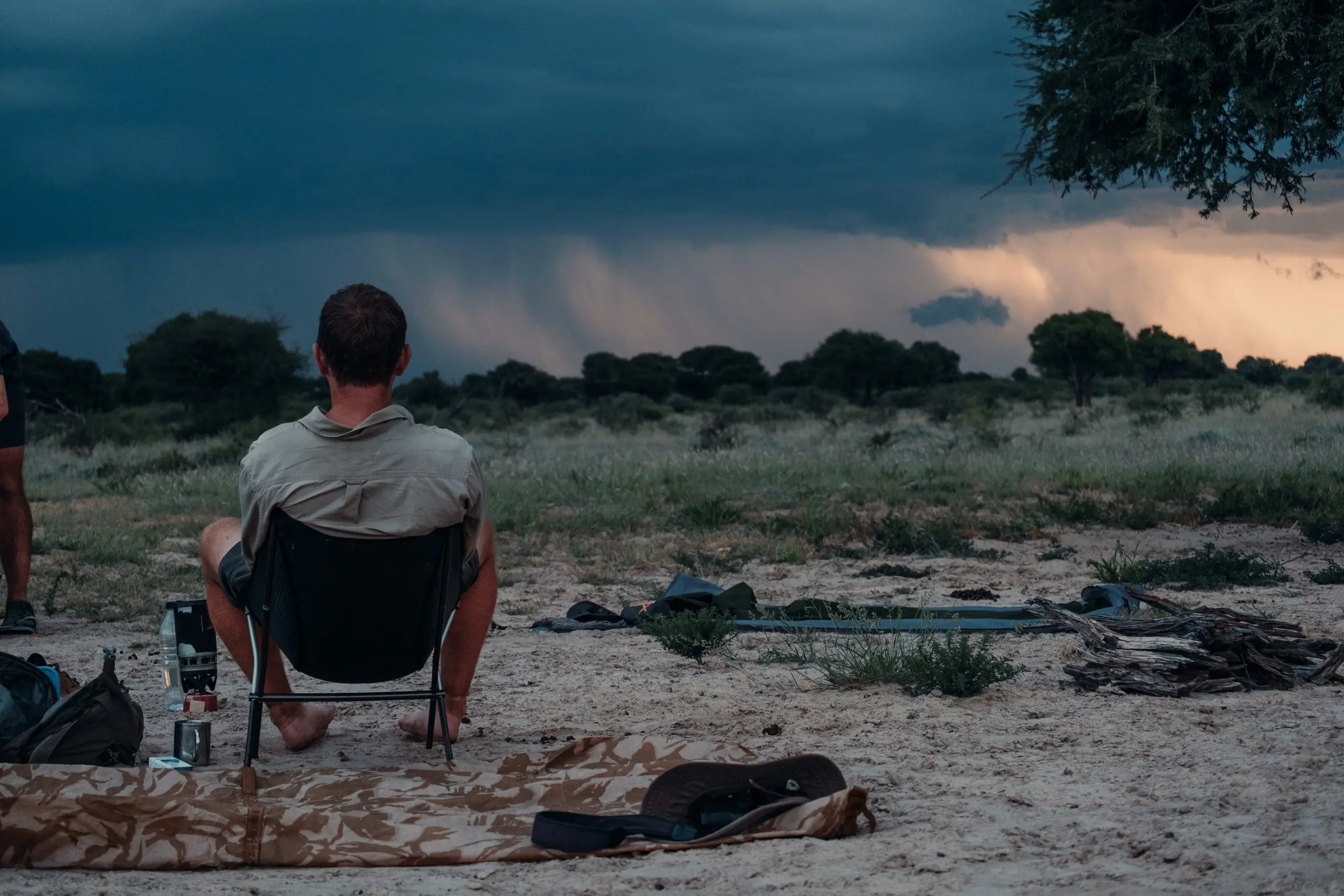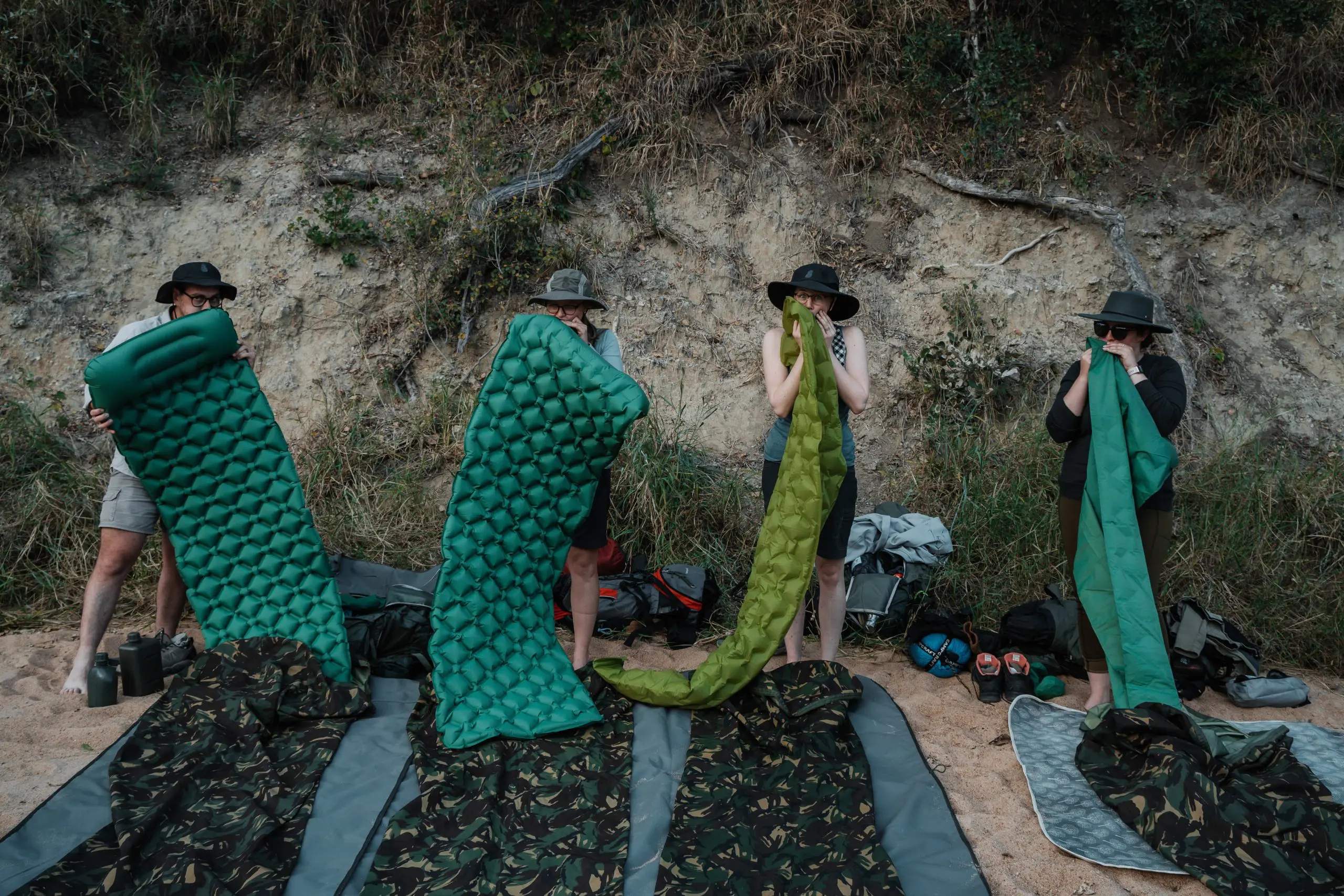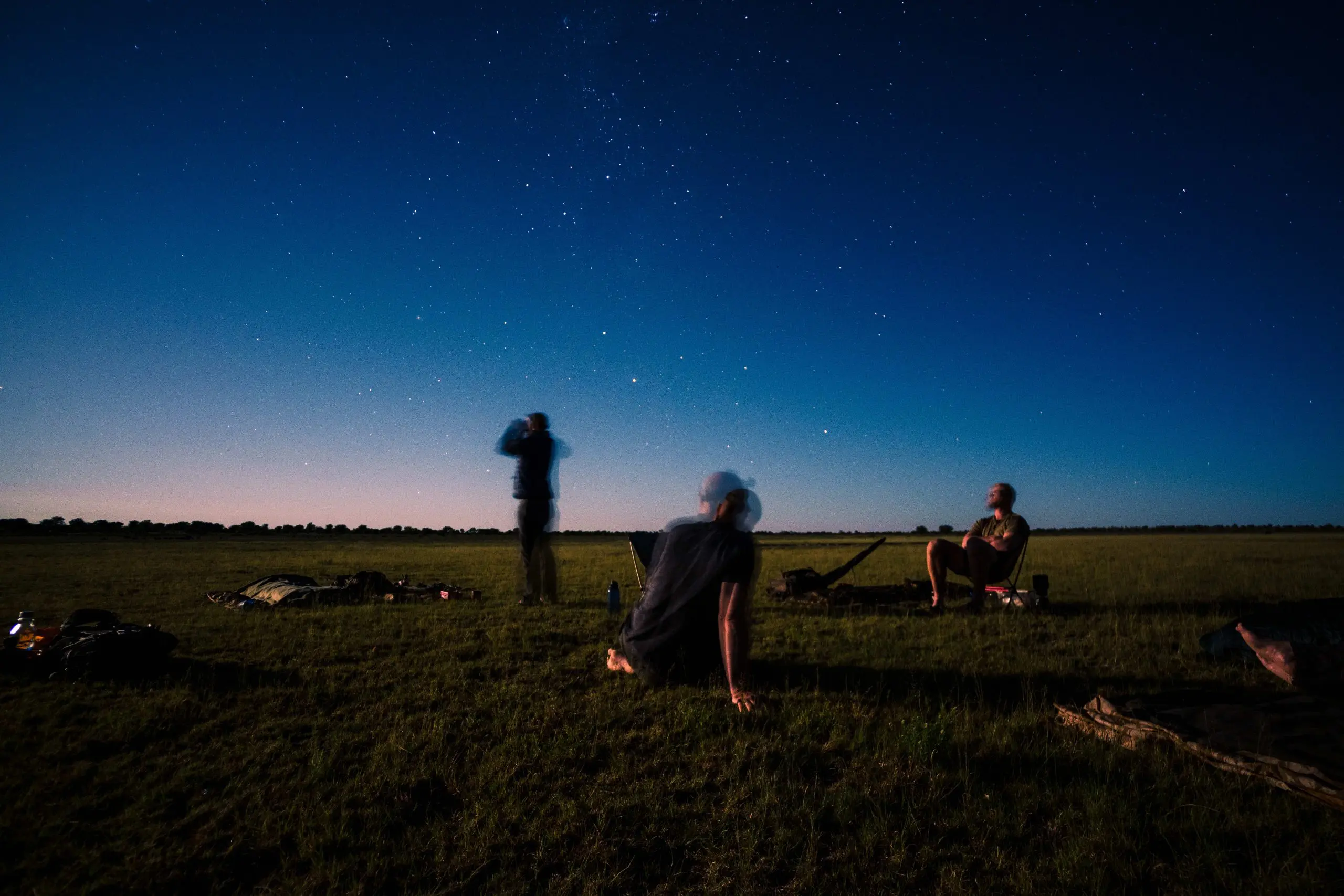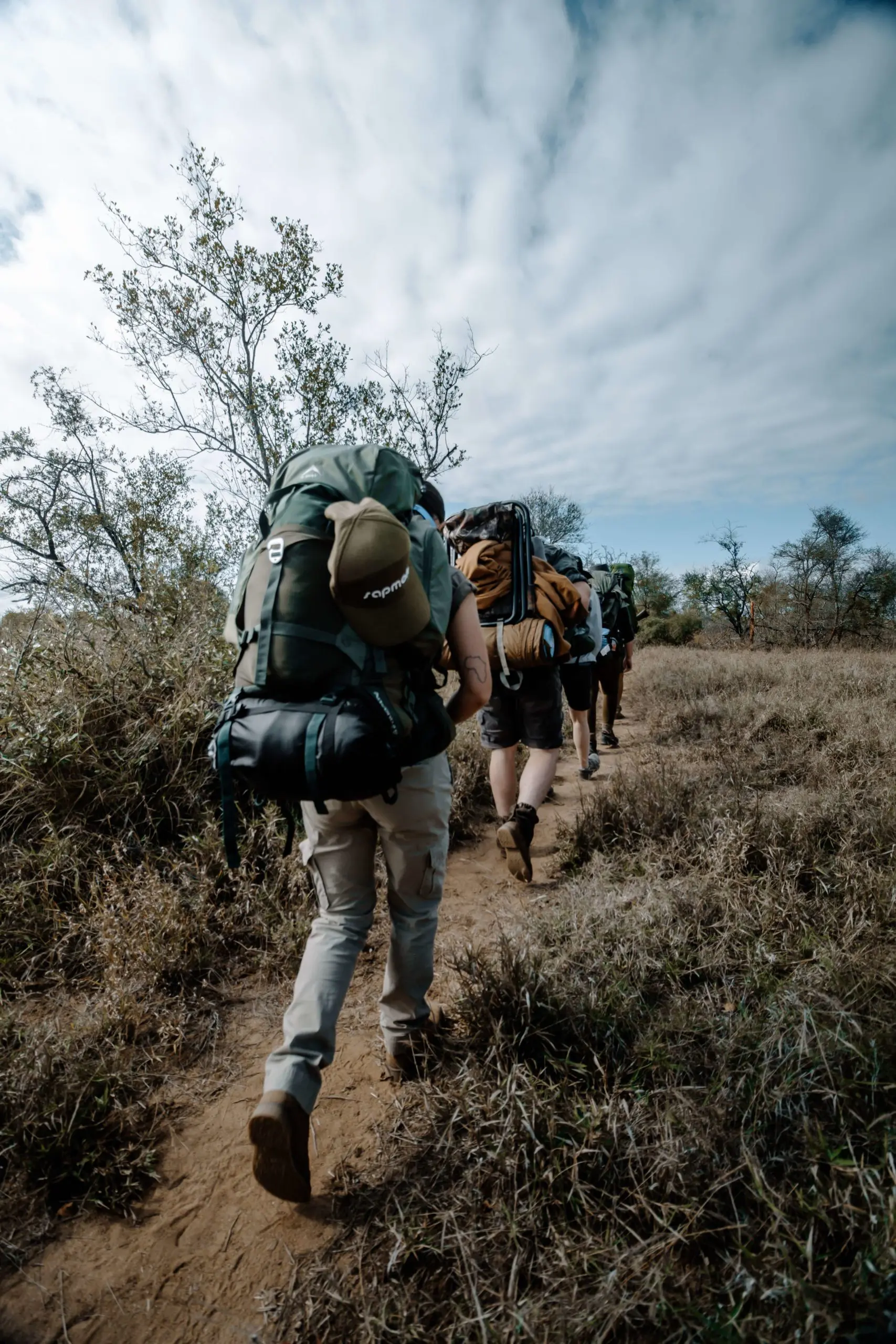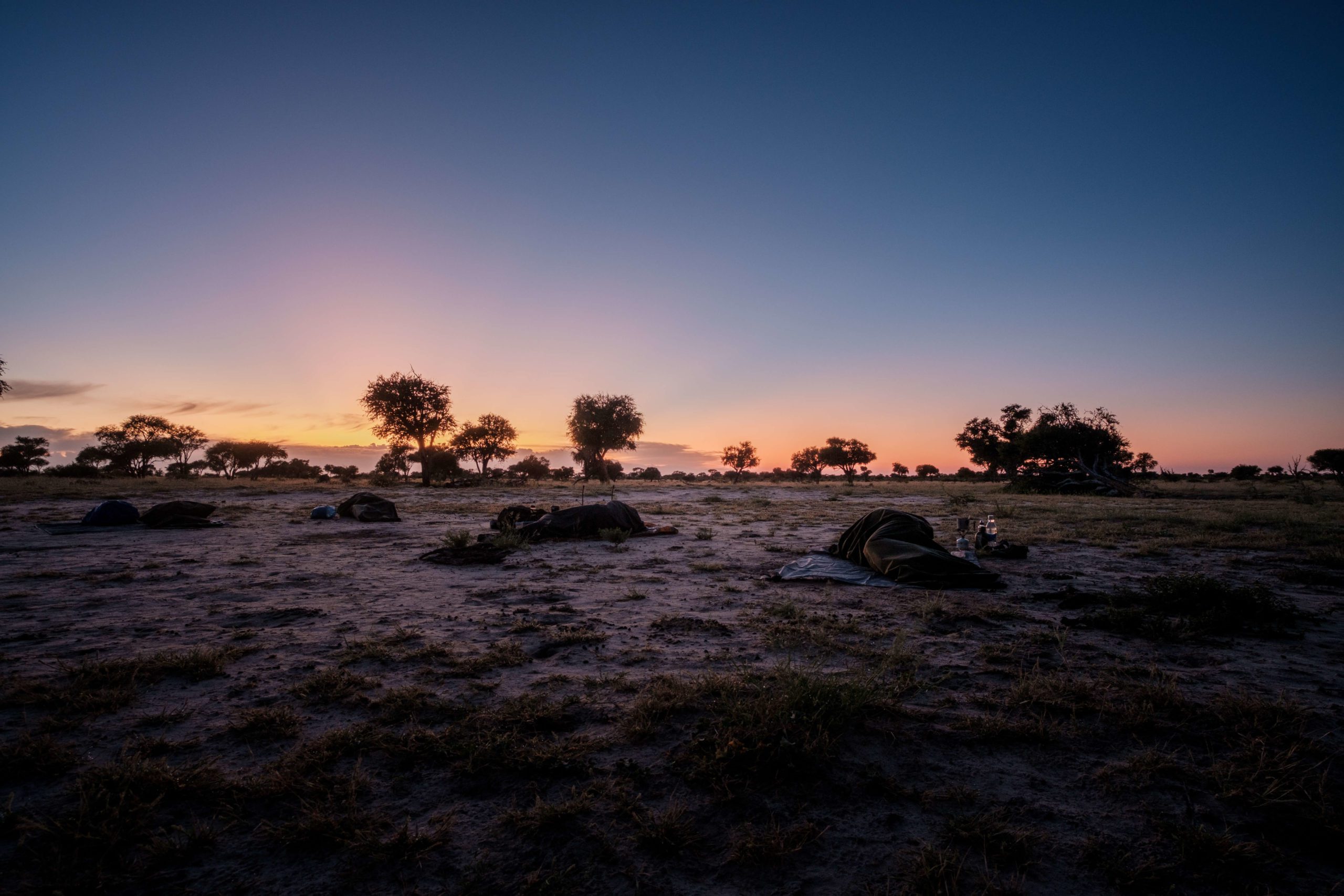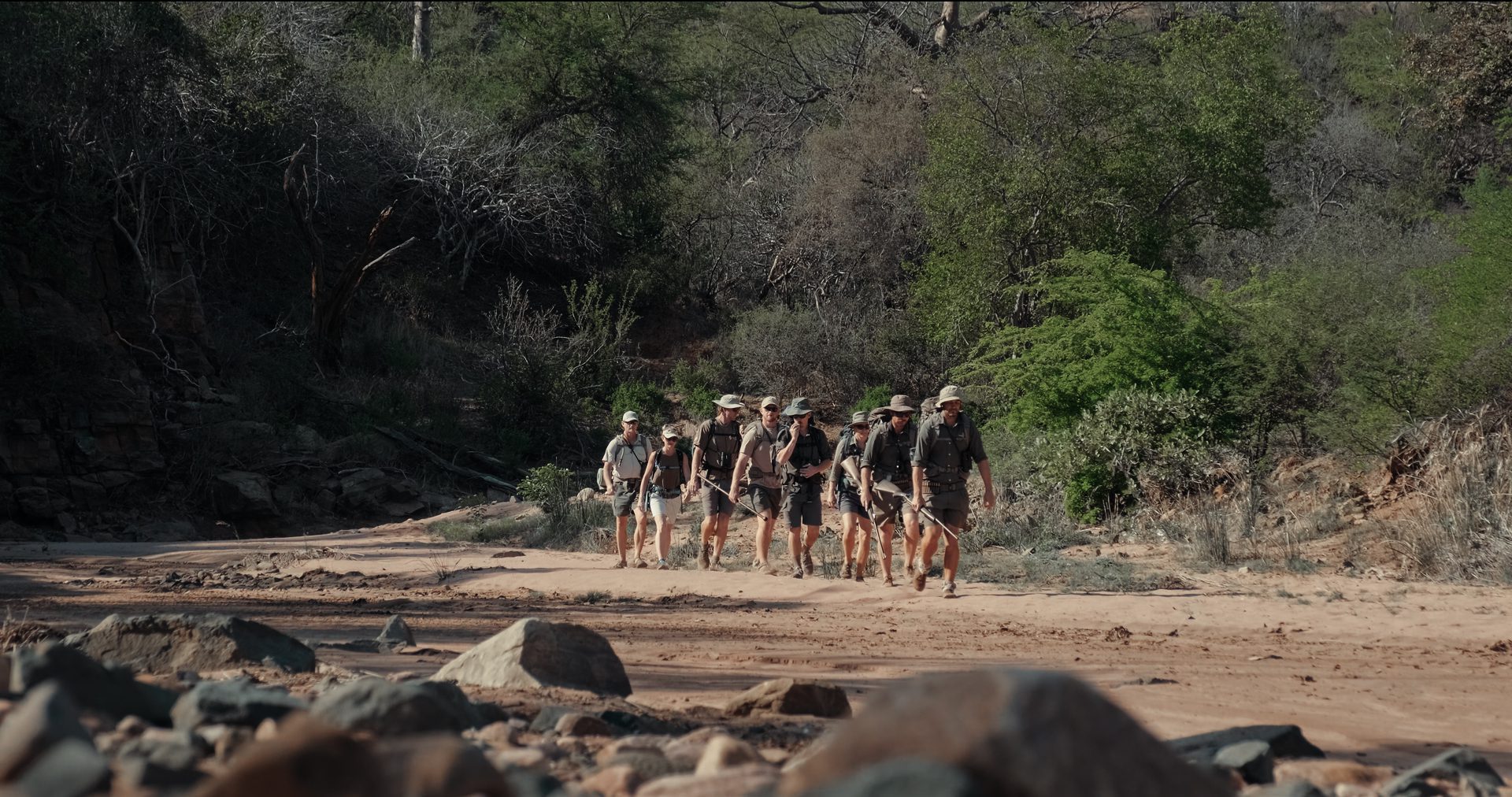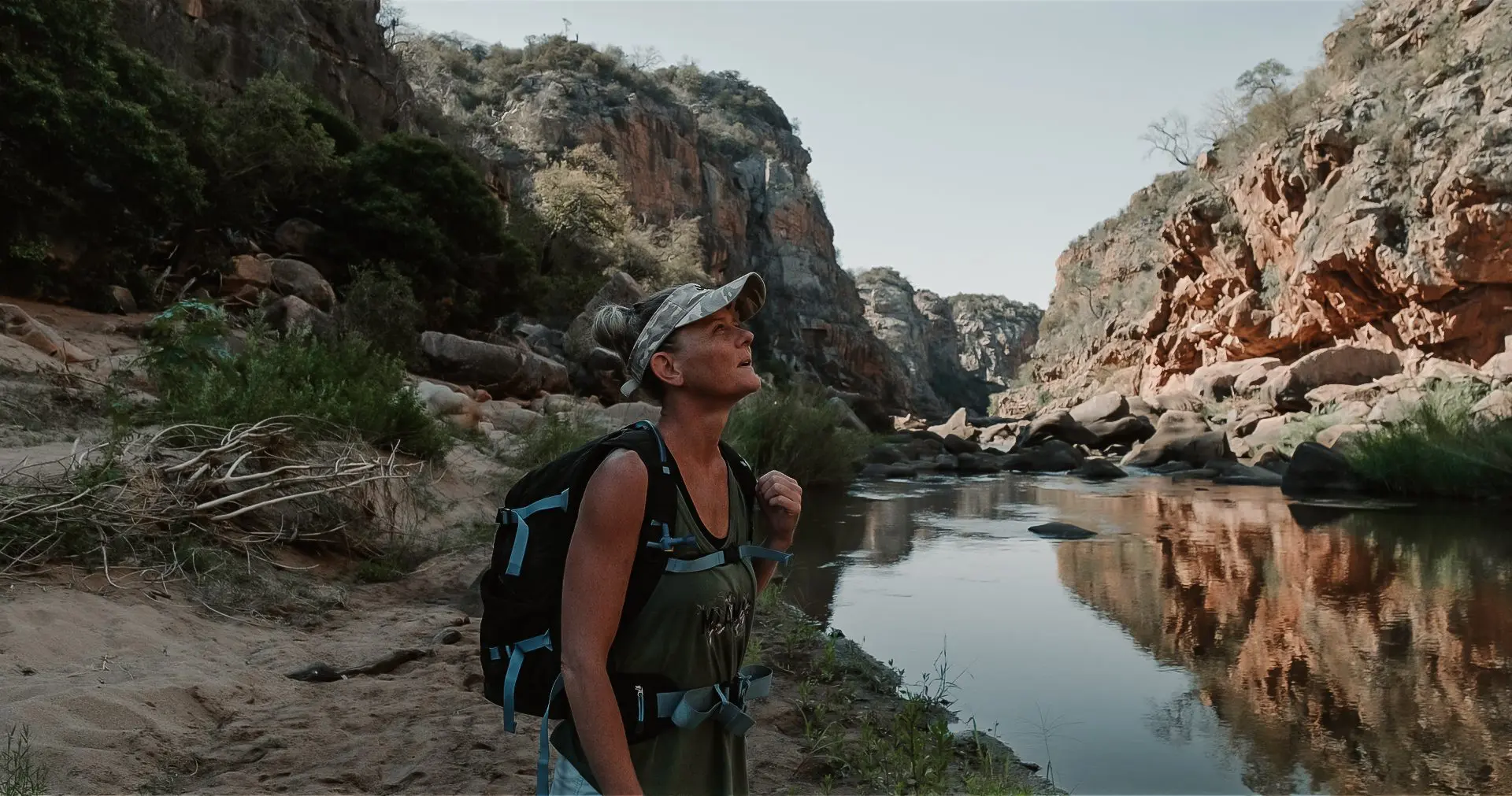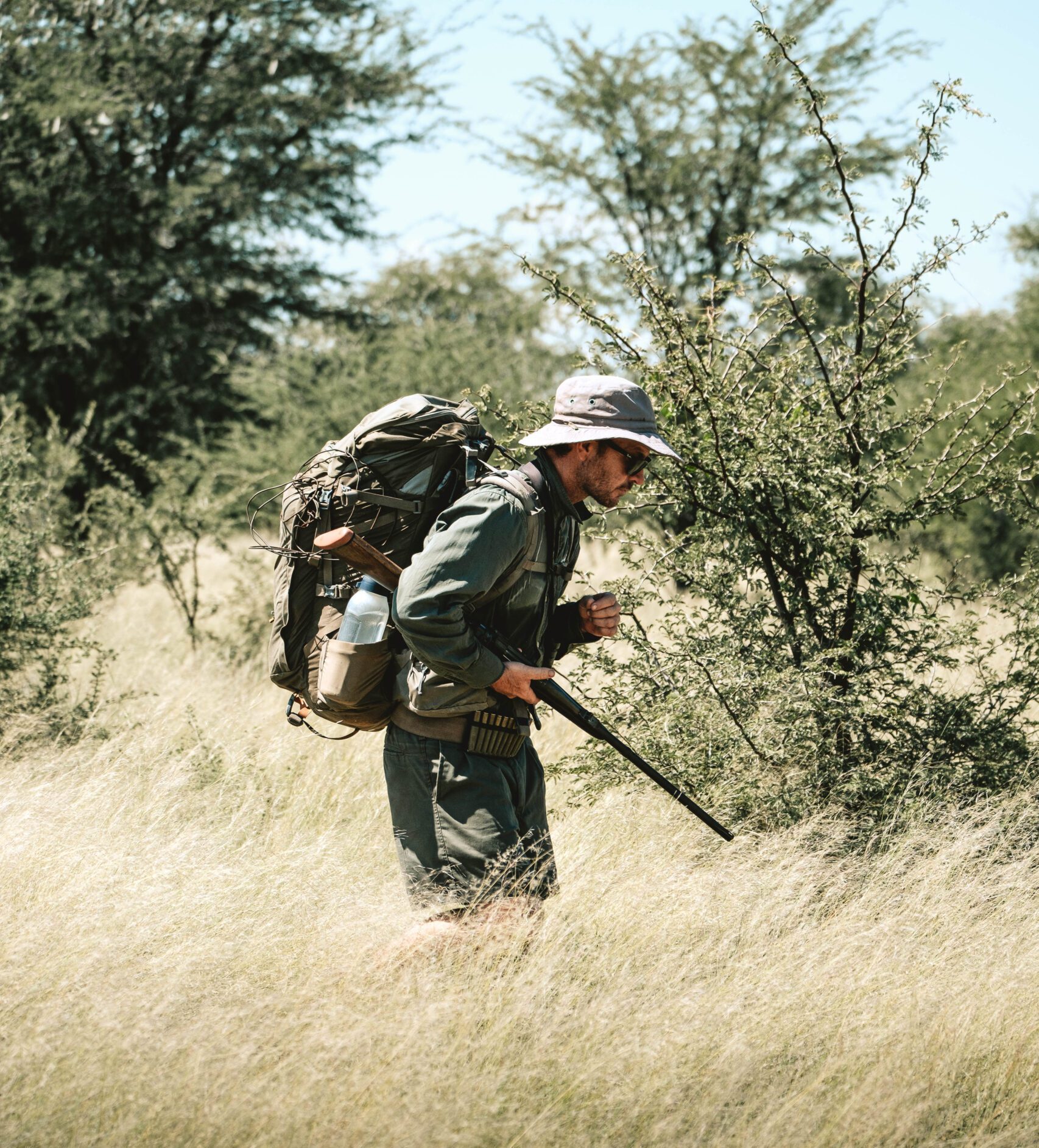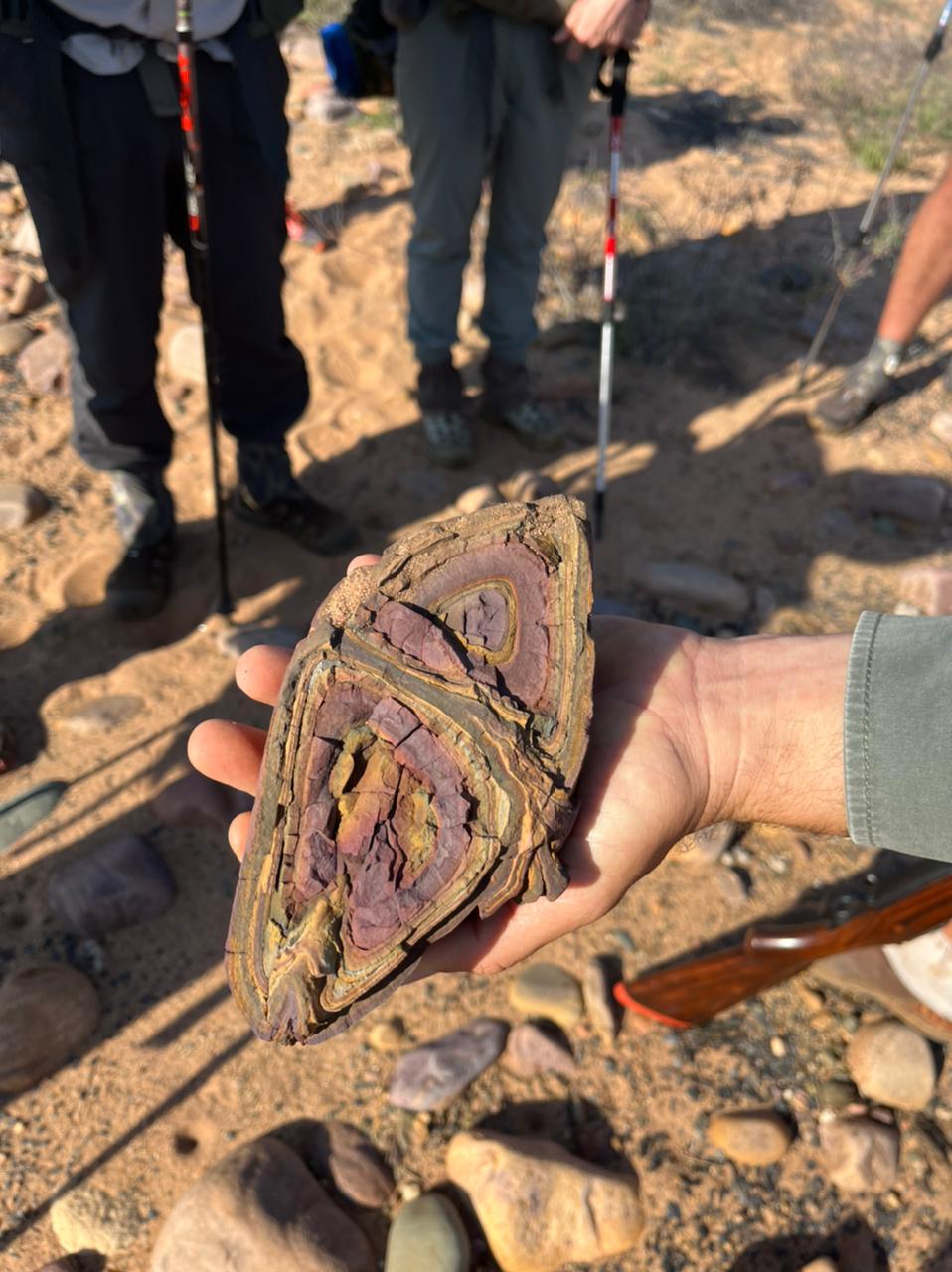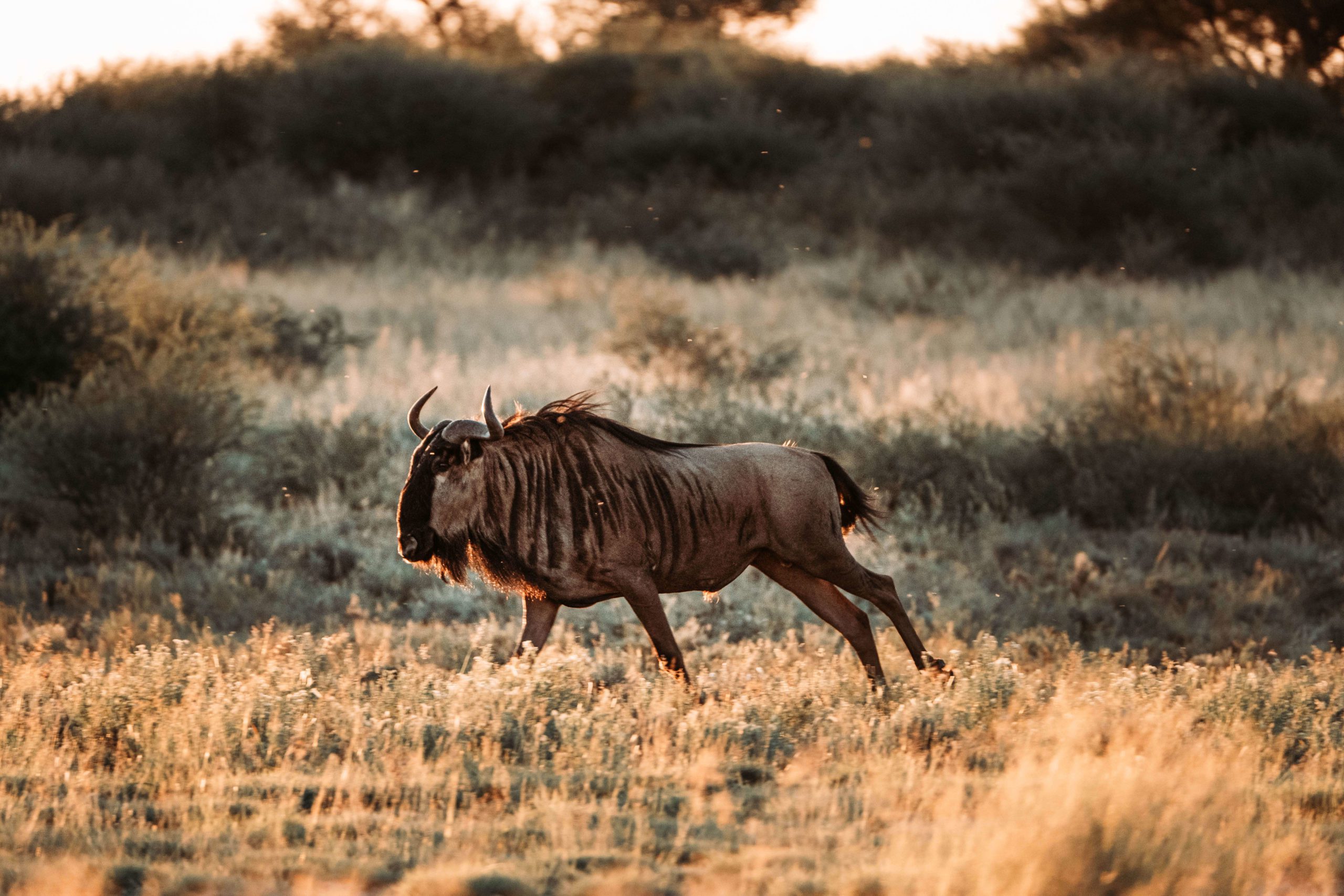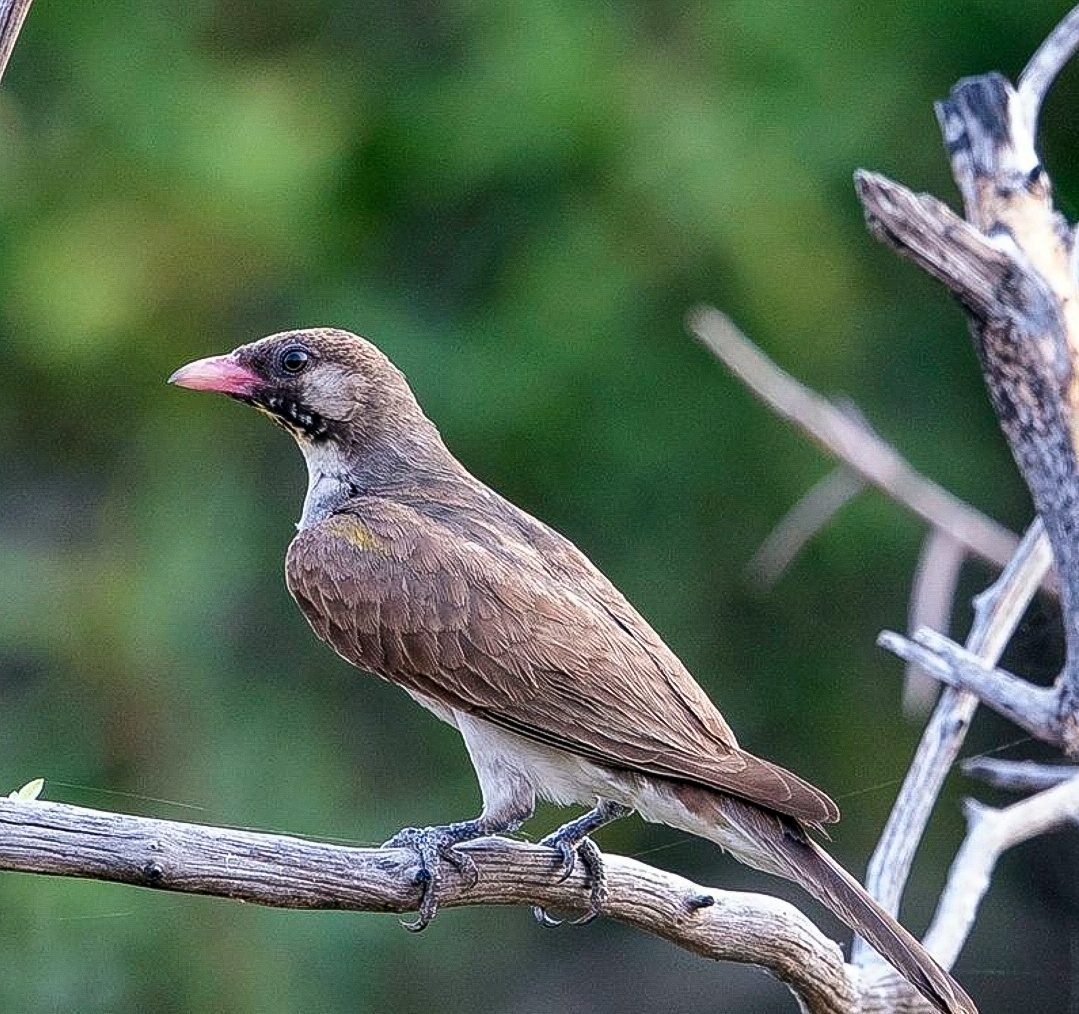The gnarled, exposed roots of two large Apple-leaf trees provided us with a suitable bench. Recent tracks of Buffalo and Elephant at their base further suggested that the misshapen trees were well used scratching posts. We were having lunch beside Mabandi spring on the Lonely Bull Backpack Trail in Kruger National Park.
Earlier that morning, after saluting the sunrise with a strong cup of coffee, we had left our campsite overlooking a reed-chocked Letaba River, and followed the Matrabowa Spruit to the south-west. Altogether we were ten; eight guests, my back-up (second rifle) and I. The path we had followed in the early morning chill criss-crossed the drainage line and had been used in the pre-dawn hours by a group of three ‘Dagga Boys’. The trail was obvious as their heavy hooves had dug into the hard-packed earth. As we followed, the sign became fresher and I had expected to spot them up ahead at any moment as we eased through the dense thickets that inevitably appeared after every open grassy stretch shaded by large twisted Apple-leaf and Leadwood trees. I was relieved when the tracks left the path and headed south away from the drainage line and into the endless mopanes.
We had stopped for breakfast in the cool dense shade on a bend of the spruit. The wall of thick green mopane pressed close to the drainage line and the small pool of water next to which we rested. Afterwards, we continued upstream to the confluence of the Mabandi spruit, which we followed to the south, walking silently on a timeless Elephant path. It steered us upstream through the cathedral-like atmosphere of the mature open woodland of the spruits’ narrow floodplain.
It had already been a busy morning, with sightings of Impala, Kudu, Honey badger and a breeding herd of Elephant.
As we approached the spring, through a gap in the thick mopane and across the little drainage line, I spotted a big Buffalo bull about 50 meters away. The light breeze had seemed good, but in the few seconds it took for the group to move to my position, it had turned fickle and betrayed us. The thundering of a few hundred hooves beyond the bull surprised us, as what must have been a substantial herd hastily departed in a cloud of dust. Predictably, the bull turned and followed.
After such a big disturbance, it was no surprise when the only life at the water was a thirsty Namaqua Dove, which fluttered up from the edge of the shallow, clear-water pools surrounded by elephant diggings.
We had just settled down for lunch when the big ‘Tusker’ broke through the mopanes, walking into the wind and straight in our direction. I stood up slowly to let him know we were there, not wanting to surprise him at the last minute. He wasn’t fazed at all. He stopped, peered down at us for a few seconds, and then calmly ambled past us down to the drainage line into which the spring feeds. We stood but 20 meters from him. He stopped at the water and with a swinging foot, kicked up wet sand and mud, slapping a bit of it on his legs. With a half-hearted head-shake, he shuffled another 30 meters past us and proceeded to cover himself with a thick layer of mud.
He had approached the spring while being able to smell us and had showed no signs of distress. Being a wise old veteran, past the days of theatrics, he had read our body language and could tell that we meant him no harm and had therefore not reacted nervously or aggressively to our presence, but had accepted us as just another group of animals at a shared resource.
We finished our lunch in silence, watching him doze serenely in the riverbed. Once more I noted movement in the mopanes and made out an Elephant cow, half-concealed in the treeline. She was hesitant to enter the open area from where our foreign scent drifted. Not wanting to disturb the area any further, we decided to vacate and allow the probable herd, currently bunched up in the thicket, to approach for a drink. We skirted the ‘Tusker’, who I don’t think noticed our movement, and started heading back toward the Letaba River.
It was very hot now. Moving up the slope, away from the drainage line, we cut a hippo path heading due north, hugging the crest, and followed this to the river, and our temporary camp.


